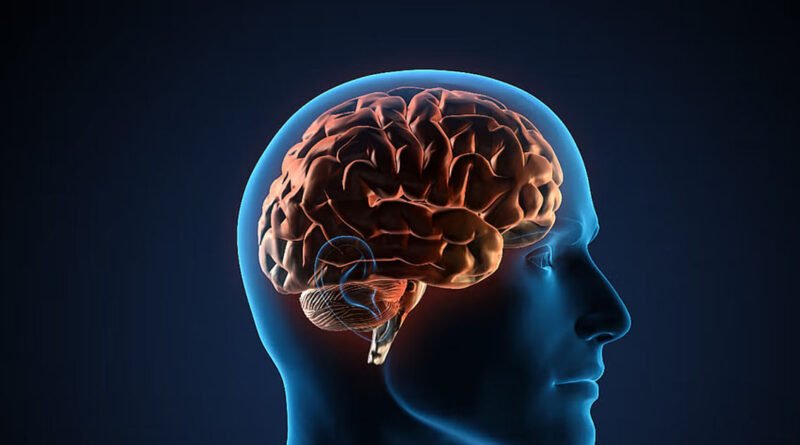Diet and exercise can treat depression as well as a psychologist, study found. And it’s cheap
Adrienne O’Neil and Sophie Mahoney for Interview
Melbourne: About 3.2 million Australians live with depression. At the same time, few Australians meet recommended dietary or exercise guidelines. How is one related to the other? Our world-first trial, published this week, shows improving diet and getting more exercise can work as well as psychotherapy for treating low-grade depression.
Previous studies (including our own) have found “lifestyle” treatments to be effective for depression. But they have never been directly compared to psychological treatments – until now.
Amid the nationwide shortage of mental health professionals, our research points to a possible solution. Just as we found lifestyle counseling to be as effective as psychotherapy, our findings suggest that dietitians and physical therapists may one day play a role in managing emotional stress.
What did our study measure?
During the prolonged COVID Lockdowns, levels of suffering in Victorians were high and widespread. Face-to-face mental health services were limited.
Our trial targeted people living in Victoria with high levels of depression, meaning at least mild depression but not necessarily a diagnosed mental health problem. Common symptoms included depression, hopelessness, irritability or crying.
We partnered with our local mental health services to recruit 182 adults and deliver group-based programs on Zoom. All participants took part in up to six sessions over eight weeks, run by health professionals.
Half were assigned to participate in a program run by a licensed dietitian and exercise therapist. The group – called a lifestyle program – developed healthy eating and exercise goals: -eating a variety of foods -choosing plant-based foods high in fiber -including healthy fats high – cut down on optional foods, such as those high in fat and high in sweet sugars. physical activity.
The second group participated in psychotherapy sessions conducted by two psychologists. The psychotherapy program used cognitive behavioral therapy (CBT), the gold standard for treating depression in groups and at a distance.
In both groups, participants may continue existing treatments (such as taking antidepressants). We gave the two groups workbooks and hampers. The lifestyle group received a dietary intervention, while the psychotherapy group received things like a coloring book, a stress ball and a head massage.
Lifestyle treatments work just as well
We found similar results in each program. At the beginning of the experiment we gave each participant a score based on their self-reported mental health. We measured them again at the end of the program.
Over eight weeks, the data showed reduced depression symptoms for participants in the lifestyle program (42 percent) and the psychotherapy program (37 percent). The difference was not statistically or clinically meaningful so we can conclude that both treatments were equivalent.
There was a difference between the groups. People in the lifestyle program improved their diet, while those in the psychotherapy program felt they had increased social support – meaning how they related to other people – compared to at the beginning of treatment.
Participants in both programs increased their physical activity. Although this was expected in a lifestyle program, it was not so expected in a psychotherapy program. It could be because they knew they were enrolled in a lifestyle research study and changed their behavior without feedback, or it could be a positive result of psychotherapy.
There was also not much difference in cost. The lifestyle program was slightly cheaper to deliver: A$482 per person, versus $503 for psychotherapy. That’s because hourly rates vary between nutritionists and physical therapists, and psychologists.
What does this mean for the shortage of mental health workers?
Demand for mental health services is increasing in Australia, while at the same time staff are facing a worsening national shortage.
Psychiatrists, who provide about half of all mental health services, can have long wait times. Our results suggest that, with appropriate training and guidelines, integrated health professionals specializing in diet and exercise can help address this gap.
Lifestyle therapies can be combined with sessions of psychoeducation for multidisciplinary care. But diet and exercise therapies can be especially effective for those on waiting lists to see psychologists, who may not be able to get other professional support while they wait.
Many nutritionists and exercise professionals already have advanced knowledge and skills in influencing behavior change. Most nutritionists are trained to manage eating disorders or gastrointestinal conditions, which are often associated with depression.
There is also the cost argument. It is generally cheaper to train a nutritionist ($153,039) than a psychologist ($189,063) – and it takes less time.
Possible obstacles
Australians with chronic conditions (such as diabetes) can access nutrition and exercise specialist support under various Medicare treatment plans. Those with an eating disorder may also be eligible for food assistance grants. But mental health care plans for people with depression don’t support counseling sessions with nutritionists or physical therapists, even though the body encourages them to do so. like that.
Additional training, upskilling and Medicare funding will be needed to support dietitians and physical therapists to be involved in the treatment of mental health problems.
Our training and clinical guidelines are intended to help nurses practice mental health in their lifestyle (tasks that a health care provider can perform).
Ways of the future
Our trial took place during the COVID Lockdowns and examined people with at least mild symptoms of depression who did not have a mental health problem. We want to replicate these findings and are now running a study open to Australians with mental health conditions such as major depression or bipolar disorder.
(Adrienne O’Neil is Professor at the Center for Food & Mood, Deakin University and Sophie Mahoney is Research Associate at the Center for Food & Mood, Deakin University)
It has been published 04 August 2024, 06:49 IS
#Diet #exercise #treat #depression #psychologist #study #cheap
